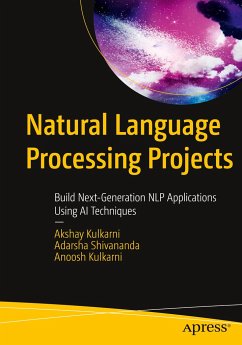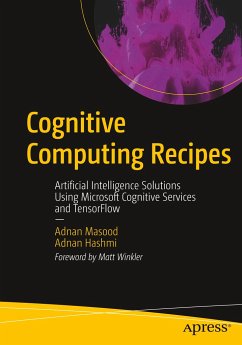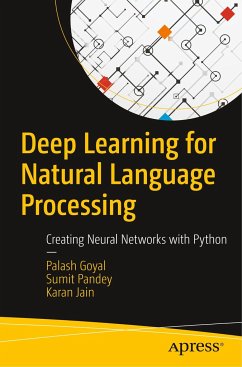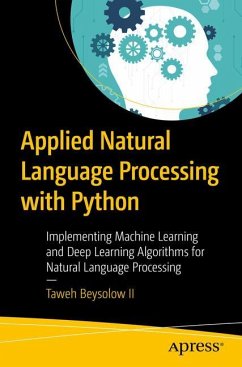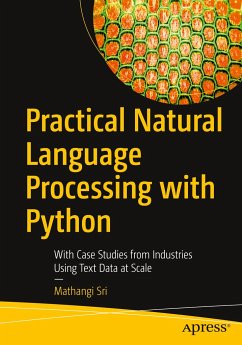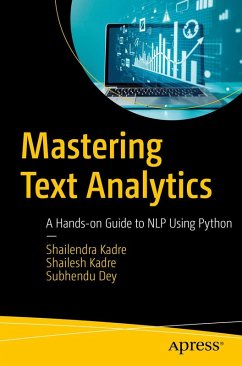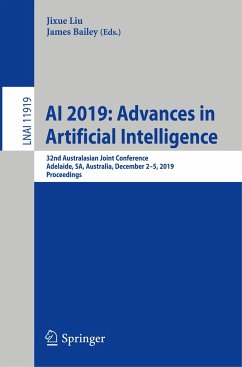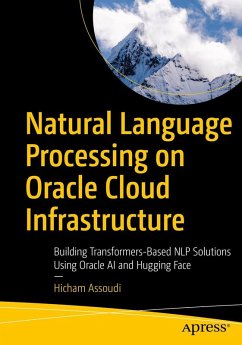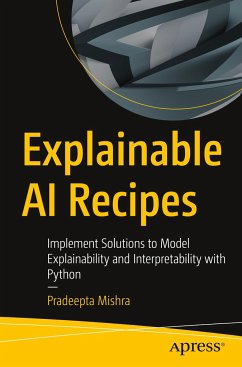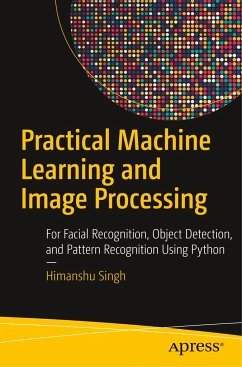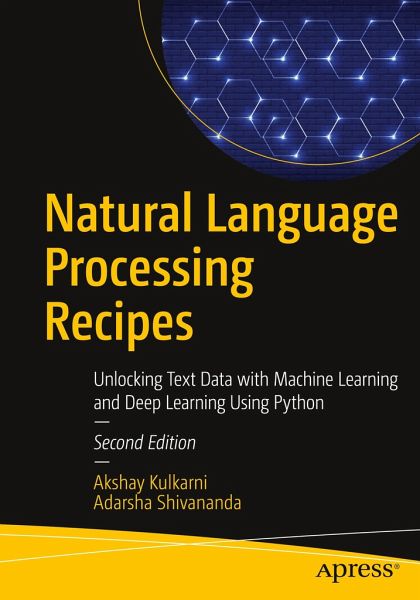
Natural Language Processing Recipes
Unlocking Text Data with Machine Learning and Deep Learning Using Python

PAYBACK Punkte
23 °P sammeln!
Focus on implementing end-to-end projects using Python and leverage state-of-the-art algorithms. This book teaches you to efficiently use a wide range of natural language processing (NLP) packages to: implement text classification, identify parts of speech, utilize topic modeling, text summarization, sentiment analysis, information retrieval, and many more applications of NLP. The book begins with text data collection, web scraping, and the different types of data sources. It explains how to clean and pre-process text data, and offers ways to analyze data with advanced algorithms. You then exp...
Focus on implementing end-to-end projects using Python and leverage state-of-the-art algorithms. This book teaches you to efficiently use a wide range of natural language processing (NLP) packages to: implement text classification, identify parts of speech, utilize topic modeling, text summarization, sentiment analysis, information retrieval, and many more applications of NLP.
The book begins with text data collection, web scraping, and the different types of data sources. It explains how to clean and pre-process text data, and offers ways to analyze data with advanced algorithms. You then explore semantic and syntactic analysis of the text. Complex NLP solutions that involve text normalization are covered along with advanced pre-processing methods, POS tagging, parsing, text summarization, sentiment analysis, word2vec, seq2seq, and much more. The book presents the fundamentals necessary for applications of machine learning and deep learning in NLP. This second edition goes over advanced techniques to convert text to features such as Glove, Elmo, Bert, etc. It also includes an understanding of how transformers work, taking sentence BERT and GPT as examples. The final chapters explain advanced industrial applications of NLP with solution implementation and leveraging the power of deep learning techniques for NLP problems. It also employs state-of-the-art advanced RNNs, such as long short-term memory, to solve complex text generation tasks.
After reading this book, you will have a clear understanding of the challenges faced by different industries and you will have worked on multiple examples of implementing NLP in the real world.
What You Will LearnKnow the core concepts of implementing NLP and various approaches to natural language processing (NLP), including NLP using Python libraries such as NLTK, textblob, SpaCy, Standford CoreNLP, and more
Implement text pre-processing and feature engineering in NLP, including advanced methods offeature engineeringUnderstand and implement the concepts of information retrieval, text summarization, sentiment analysis, text classification, and other advanced NLP techniques leveraging machine learning and deep learning
Who This Book Is For
Data scientists who want to refresh and learn various concepts of natural language processing (NLP) through coding exercises
The book begins with text data collection, web scraping, and the different types of data sources. It explains how to clean and pre-process text data, and offers ways to analyze data with advanced algorithms. You then explore semantic and syntactic analysis of the text. Complex NLP solutions that involve text normalization are covered along with advanced pre-processing methods, POS tagging, parsing, text summarization, sentiment analysis, word2vec, seq2seq, and much more. The book presents the fundamentals necessary for applications of machine learning and deep learning in NLP. This second edition goes over advanced techniques to convert text to features such as Glove, Elmo, Bert, etc. It also includes an understanding of how transformers work, taking sentence BERT and GPT as examples. The final chapters explain advanced industrial applications of NLP with solution implementation and leveraging the power of deep learning techniques for NLP problems. It also employs state-of-the-art advanced RNNs, such as long short-term memory, to solve complex text generation tasks.
After reading this book, you will have a clear understanding of the challenges faced by different industries and you will have worked on multiple examples of implementing NLP in the real world.
What You Will LearnKnow the core concepts of implementing NLP and various approaches to natural language processing (NLP), including NLP using Python libraries such as NLTK, textblob, SpaCy, Standford CoreNLP, and more
Implement text pre-processing and feature engineering in NLP, including advanced methods offeature engineeringUnderstand and implement the concepts of information retrieval, text summarization, sentiment analysis, text classification, and other advanced NLP techniques leveraging machine learning and deep learning
Who This Book Is For
Data scientists who want to refresh and learn various concepts of natural language processing (NLP) through coding exercises



